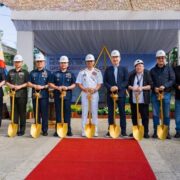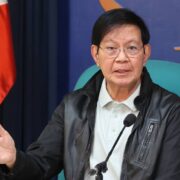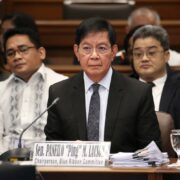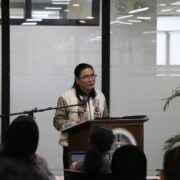Will Marcos learn from history and change its course?

Although with different lead actors—the late President Ferdinand Marcos Sr. then, and President Ferdinand Marcos Jr. now—the scenarios and sequence of events are almost the same.
In 1983, former Sen. Ninoy Aquino was assassinated. There was a flood of people in the streets who joined and watched his funeral march. Marcos Sr. created the Fernando Commission and later, the Agrava Commission, to investigate Aquino’s assassination. But some principal suspects were either spared from the investigation or ultimately acquitted by the Sandiganbayan, like Gen. Fabian Ver, businessman Eduardo Cojuangco Jr., and other publicly known cronies. While protests were ongoing, there were lavish parties in Malacañang. There was a snap election. People were disgruntled with the results of both the investigation and the snap election. There were talks of a coup d’état. There was people power. And the rest is history.
Today, there is massive corruption in government infrastructure under the DPWH, and most likely in other government agencies, too, where billions of people’s money is involved. There is real flooding all over the country. President Marcos Jr. created an Independent Commission for Infrastructure (ICI) to investigate anomalies and corruption in government infrastructure projects, particularly in flood control. The Senate and House of Representatives are also conducting their own investigations. But the public is sensing that there are once again sacred cows who are sparingly touched by all investigations, particularly former House Speaker Martin Romualdez and other implicated senators. While the streets are flooded, there is a series of concerts at Goldenberg.
Sen. Alan Peter Cayetano suggested a snap election. People are getting angry and starting protest marches and rallies again, the biggest one, last Sept. 21, which was the anniversary of the declaration of martial law. If the results of all investigations, particularly of the ICI, are unacceptable to the people, this can lead to bigger protests and rallies similar to the 1986 People Power Revolution. And what could be next?
We are always told that those who do not learn from history are bound to repeat the same mistakes and consequently suffer the same results.
Mr. Marcos Jr., during the 108th birth anniversary of his father, mentioned that his “every act must be motivated by a true commitment to service and driven by true love of every single Filipino and a love for the Republic of the Philippines.” He wants to be “on the right side of history.”
Filipinos join him in this wish and hope that God and providence will help him change the course of history. The impending events, if history repeats itself, and what comes thereafter, might even be worse than what the Philippines had after the first people power.
The majority of Filipinos obviously never learned from history, as they keep on voting for the same corrupt national and local officials. Our political history also keeps on repeating itself, as we get more entangled in the web of corruption, which has become more systemic and systematic.
VICTOR T. REYES,
victorreyes.law@gmail.com
For letters to the editor and contributed articles, email to opinion@inquirer.net

















